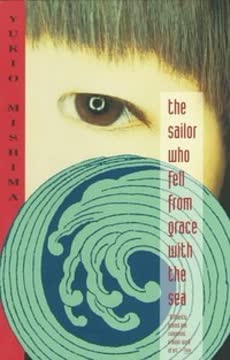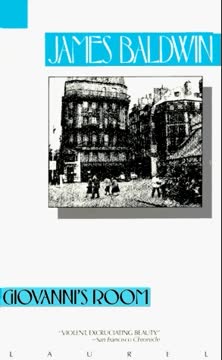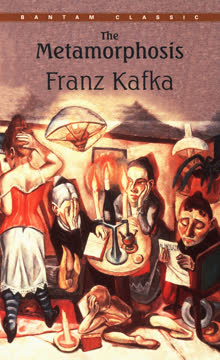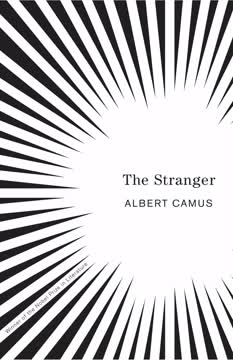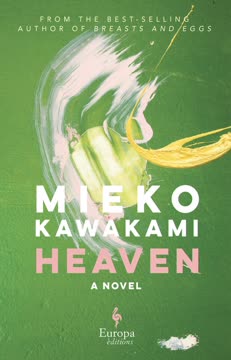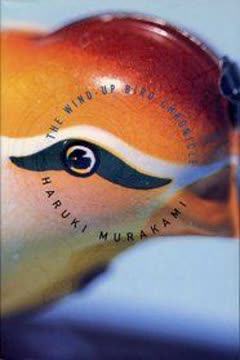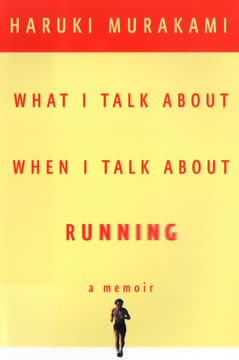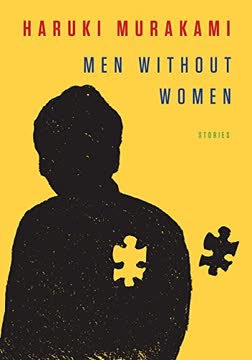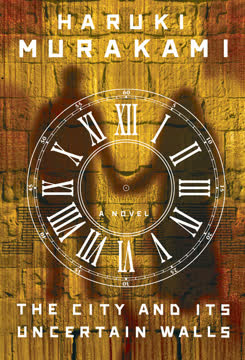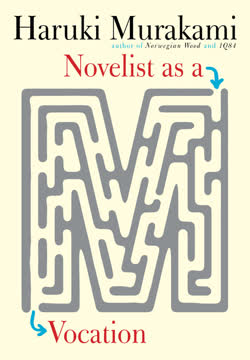Plot Summary
Tornado Love Strikes
Sumire, a 22-year-old aspiring novelist, is swept up in her first love—a passionate, overwhelming infatuation with Miu, a sophisticated businesswoman seventeen years her senior. This love is all-consuming, reshaping Sumire's world and priorities. The narrator, Sumire's close friend and confidant (an unnamed elementary school teacher), observes her transformation with a mix of admiration and heartbreak, as he himself harbors unspoken feelings for Sumire. The story's emotional core is set: three people, each loving someone who cannot love them back in the same way, orbiting each other like satellites in space.
Three Unrequited Hearts
The narrator's love for Sumire is deep but unreturned; Sumire's love for Miu is intense but complicated by Miu's emotional distance; and Miu, haunted by her own past, cannot reciprocate Sumire's desire. Each character is isolated by their longing, unable to bridge the emotional gaps between them. Their relationships are marked by missed connections, misunderstandings, and the pain of loving someone who cannot fully love you back. This triangle of yearning sets the stage for the novel's exploration of loneliness and the limits of intimacy.
Miu's Mysterious Invitation
Miu offers Sumire a job as her assistant, drawing her into a new, refined world of business, travel, and culture. Sumire, previously a disheveled, bohemian would-be writer, is transformed by Miu's influence—she dresses better, learns new skills, and becomes more organized. Yet, beneath the surface, Sumire's creative energy is stifled, and her longing for Miu grows more desperate. The narrator watches this transformation with concern, sensing that Sumire is losing touch with her true self.
Becoming Sputnik Sweetheart
Sumire's private nickname for Miu—"Sputnik Sweetheart"—captures the sense of orbiting loneliness and unreachable desire that defines their relationship. The reference to Sputnik, the first artificial satellite, symbolizes both the excitement of new frontiers and the cold isolation of space. As Sumire becomes more enmeshed in Miu's life, she struggles with her own identity, feeling both closer to and more distant from her own creative ambitions and emotional needs.
The Writer's Blocked Gate
Despite her new experiences, Sumire finds herself unable to write. She is haunted by the metaphor of the Chinese city gate, which requires both bones (structure) and blood (life) to become real. Sumire has the bones—ideas, images, fragments—but lacks the "blood" to bring her stories to life. She confides in the narrator, who encourages her to seek experience and passion, but Sumire remains stuck, unable to reconcile her inner world with the demands of reality.
Lessons in Loneliness
The narrator reflects on his own solitary childhood and the invisible boundaries he maintains with others. He and Sumire share a unique intimacy, but it is always platonic, tinged with longing and regret. The theme of loneliness—of being fundamentally alone even in the presence of others—pervades their conversations. The narrator's attempts to find comfort in other relationships only highlight the irreplaceable connection he feels with Sumire.
A European Escape
Sumire accompanies Miu on a business trip through Italy and France, experiencing new places and pleasures. She writes long, detailed letters to the narrator, describing her adventures and her deepening feelings for Miu. The trip is both exhilarating and unsettling; Sumire feels disassembled, as if she is losing her sense of self. The journey culminates in an invitation to a Greek island, where the boundaries between reality and dream begin to blur.
Greek Island Disappearance
On the idyllic Greek island, Sumire and Miu settle into a peaceful routine. But after a night of emotional intensity—when Sumire tries and fails to consummate her love for Miu—Sumire disappears. Miu, distraught and confused, contacts the narrator in Tokyo, begging him to come to Greece. The sense of mystery and loss deepens, as the narrator embarks on a journey to find Sumire, unsure if she is alive or dead.
The Search for Sumire
The narrator arrives on the island and joins Miu in searching for Sumire. They retrace her steps, question locals, and appeal to the authorities, but find no clues. Sumire's belongings are left behind, as if she simply evaporated. The narrator discovers a floppy disk containing Sumire's final writings, which offer cryptic insights into her state of mind but no concrete explanation for her disappearance. The search becomes a meditation on the limits of understanding and the pain of unresolved loss.
Miu's Ferris Wheel Trauma
Miu confides in the narrator about a traumatic event from her past: as a young woman in Switzerland, she was trapped overnight in a Ferris wheel and witnessed, through binoculars, a doppelgänger of herself being violated in her own apartment. The experience split her in two—her hair turned white, her sexuality vanished, and she became emotionally numb. This story illuminates Miu's inability to connect with Sumire and her own sense of being only half alive.
The Other Side's Door
Sumire's writings and dreams, as well as Miu's trauma, revolve around the idea of "the other side"—a parallel world of lost possibilities, unreachable desires, and alternate selves. The metaphorical door between worlds becomes central: Sumire, unable to find fulfillment in reality, may have crossed over to this other side, leaving behind only traces of her existence. The narrator grapples with the possibility that some losses are absolute, and some mysteries unsolvable.
Letters, Dreams, and Loss
The narrator pores over Sumire's letters and disk, searching for meaning. Her writings are filled with dreams, metaphors, and philosophical musings on identity, love, and the boundaries between self and other. The documents are both a testament to her inner life and a final farewell, leaving the narrator with more questions than answers. The act of reading becomes an act of mourning, a way to keep Sumire's memory alive.
The World Without Sumire
The narrator returns to Tokyo, changed by his experiences. He resumes his teaching job, but everything feels different—emptier, more fragile. He reflects on the nature of loss, the passage of time, and the impossibility of returning to the person he was before. The world without Sumire is a colder, lonelier place, and the narrator struggles to find meaning in the everyday.
The Boy Who Stole
A subplot involving a student, Carrot, who is caught shoplifting, echoes the novel's themes of alienation and the search for connection. The narrator's attempts to reach the boy are met with silence, but a moment of shared vulnerability creates a fleeting sense of understanding. The incident serves as a metaphor for the small, often unnoticed ways people try to bridge the gaps between themselves and others.
Letting Go of Love
The narrator ends his affair with Carrot's mother, recognizing that he cannot be both part of the problem and the solution. The breakup is painful but necessary, another instance of letting go of something precious. The narrator is left with memories, regrets, and the knowledge that some connections cannot be sustained, no matter how much they are needed.
The Phone That Rings
Late at night, the narrator dreams—or perhaps experiences—a phone call from Sumire. She speaks to him as if nothing has changed, asking him to come find her. The conversation is surreal, blending reality and fantasy, hope and despair. The phone call becomes a symbol of the enduring bond between them, even across the boundaries of life and death, presence and absence.
Awaiting the Return
The narrator waits for Sumire's promised call, suspended between hope and resignation. He reflects on the nature of waiting, the persistence of longing, and the ways in which the past continues to shape the present. The act of waiting becomes an act of faith, a refusal to accept finality in the face of loss.
Connected by the Moon
The novel ends with the narrator looking up at the moon, knowing that somewhere, Sumire is looking at the same moon. Despite the vast distances—physical, emotional, existential—that separate them, they remain connected by memory, longing, and the shared experience of loneliness. The story closes on a note of quiet hope, suggesting that even in isolation, human beings can find meaning in their connections to others.
Characters
Sumire
Sumire is a fiercely intelligent, eccentric young woman obsessed with literature and the idea of becoming a novelist. She is emotionally intense, socially awkward, and deeply romantic, yet struggles to translate her inner world into finished stories. Her love for Miu is transformative but ultimately unrequited, leading her to question her identity and purpose. Sumire's psychological journey is marked by longing, confusion, and a search for meaning beyond the ordinary. Her disappearance is both literal and symbolic—a crossing into "the other side" where unfulfilled desires and alternate selves reside. Through her letters and writings, she remains a haunting presence, embodying the novel's themes of loneliness, creativity, and the limits of connection.
The Narrator (K)
The unnamed narrator is Sumire's closest friend and confidant, a gentle, introspective elementary school teacher. He is defined by his quiet longing for Sumire, his capacity for empathy, and his acute sense of isolation. Though he loves Sumire deeply, he is unable to bridge the emotional distance between them. His role is that of witness and caretaker, offering support and understanding even as he grapples with his own loneliness. The narrator's psychological arc is one of acceptance—learning to live with loss, to find meaning in memory, and to endure the solitude that comes with loving someone who cannot love you back.
Miu
Miu is a sophisticated, enigmatic businesswoman whose life is shaped by a traumatic event in her past. After being trapped in a Ferris wheel and witnessing a doppelgänger of herself being violated, she is left emotionally numb, her hair turning white overnight. Miu is both nurturing and distant, capable of deep affection but unable to reciprocate Sumire's desire. Her relationship with Sumire is marked by tenderness, regret, and an unbridgeable gap. Miu's psychological complexity lies in her sense of being split in two—half alive, half lost to "the other side". She is both a catalyst for Sumire's transformation and a symbol of the novel's central mysteries.
Carrot (Shin'ichi Nimura)
Carrot is a quiet, withdrawn student in the narrator's class, caught shoplifting multiple times. His actions are a silent cry for help, reflecting the novel's themes of alienation and the difficulty of communication. Carrot's relationship with the narrator becomes a subtle parallel to the main story—a small, poignant example of the struggle to reach across emotional distances. His presence underscores the universality of loneliness and the longing for understanding.
Carrot's Mother
Carrot's mother is a beautiful, intelligent woman trapped in an unhappy marriage. She seeks comfort and connection in an affair with the narrator, but their relationship is ultimately unsustainable. Her emotional vulnerability and sense of invisibility mirror the struggles of the main characters, highlighting the pervasive nature of loneliness and the difficulty of finding lasting intimacy.
Sumire's Father
Sumire's father is a successful dentist, admired for his looks but emotionally unavailable. His inability to provide warmth or meaningful connection leaves Sumire with a sense of rootlessness and longing. He represents the generational and cultural barriers that contribute to the characters' isolation.
Sumire's Stepmother
Sumire's stepmother is a stabilizing presence in her life, offering financial and emotional support without judgment. Her acceptance of Sumire's unconventional choices provides a rare example of unconditional love in the novel, though she remains somewhat peripheral to the main drama.
The Security Guard (Nakamura)
Nakamura is the supermarket security guard who confronts Carrot and the narrator about the shoplifting incident. His blunt, skeptical worldview contrasts sharply with the narrator's idealism, serving as a foil and a reminder of the harsh realities that lie outside the characters' private worlds.
Ferdinando
Ferdinando is the man from Miu's traumatic Ferris wheel memory—a figure of desire and violation, both real and imagined. He represents the forces that split Miu's identity and sexuality, embodying the novel's themes of doubling, trauma, and the permeability of boundaries between self and other.
The Englishman
The Englishman is a minor character who offers Miu and Sumire the use of his Greek island cottage. His role is primarily functional, enabling the story's shift to the island setting and the subsequent unraveling of the central mystery.
Plot Devices
Unrequited Love Triangle
The central narrative device is the triangle of unrequited love: the narrator loves Sumire, Sumire loves Miu, and Miu is emotionally unavailable. This structure creates a sense of perpetual motion and unresolved tension, mirroring the satellites and orbits referenced throughout the novel. The characters' inability to connect fully with one another drives the plot and deepens the exploration of loneliness.
The Other Side / Doppelgänger Motif
The idea of "the other side"—a parallel world where lost possibilities and alternate selves exist—recurs throughout the novel. Miu's Ferris wheel trauma, Sumire's dreams, and the metaphorical doors between worlds all serve to blur the boundaries between reality and fantasy, self and other. The doppelgänger motif underscores the characters' sense of being divided, incomplete, and haunted by what might have been.
Letters and Writings
Sumire's letters and final writings function as both plot devices and windows into her psyche. They provide clues to her disappearance, reveal her inner struggles, and allow the narrator (and the reader) to maintain a connection with her after she is gone. The act of writing becomes a metaphor for the search for meaning and the attempt to bridge emotional distances.
Foreshadowing and Symbolism
Recurring symbols—Sputnik, gates, music, the moon—foreshadow key events and reinforce the novel's themes. The Sputnik satellite represents both connection and isolation; the Chinese gate metaphor illustrates the need for both structure and life in art and relationships; music evokes memory and longing; the moon becomes a shared point of reference for separated souls. These symbols create a sense of inevitability and resonance throughout the narrative.
Open-Ended Mystery
The novel's central mystery—Sumire's disappearance—is never fully explained. This open-endedness is a deliberate narrative choice, emphasizing the limits of understanding and the persistence of longing. The unresolved plot invites readers to grapple with ambiguity and to accept that some questions have no answers.
Analysis
Sputnik Sweetheart is a quietly devastating exploration of what it means to love, to lose, and to exist in the space between connection and isolation. Through its trio of yearning, incomplete characters, the novel examines the ways in which people orbit each other, sometimes drawing close, but never fully bridging the gaps that separate them. Murakami uses motifs of satellites, parallel worlds, and doppelgängers to suggest that each person contains multitudes—selves that are lost, hidden, or inaccessible even to those closest to us. The story's unresolved mystery and open ending reinforce the idea that some losses are irreparable, some questions unanswerable. Yet, amid the sadness, there is a quiet hope: the possibility of connection, however fleeting, and the enduring power of memory, art, and shared experience. In a world defined by loneliness, Sputnik Sweetheart suggests, it is the act of reaching out—of loving, writing, waiting, and dreaming—that gives life its meaning.
Last updated:
FAQ
0. Synopsis & Basic Details
What is Sputnik Sweetheart about?
- Unrequited Love's Orbit: Sputnik Sweetheart follows the unnamed narrator, an elementary school teacher, as he navigates his unrequited love for Sumire, a fiercely independent aspiring novelist. Sumire, in turn, falls intensely in love with Miu, an older, enigmatic businesswoman who is emotionally distant due to a past trauma.
- Search for Self & Connection: The narrative explores themes of loneliness, identity, and the elusive nature of connection as Sumire abandons her writing to work for Miu, eventually accompanying her on a business trip to Europe and a Greek island.
- Disappearance and Mystery: The story deepens when Sumire mysteriously vanishes from the Greek island, prompting the narrator to travel there and join Miu in a desperate search, uncovering Miu's traumatic past and Sumire's cryptic writings about parallel worlds and "the other side".
Why should I read Sputnik Sweetheart?
- Haunting Emotional Depth: Readers should delve into Sputnik Sweetheart for its profound exploration of unrequited love, loneliness, and the human yearning for connection, rendered with Murakami's signature blend of the mundane and the surreal. The novel offers a deeply empathetic look at characters grappling with their inner worlds and the pain of emotional distance.
- Intriguing Psychological Mystery: Beyond the love story, the book presents a compelling mystery surrounding Sumire's disappearance and Miu's past trauma, inviting readers to interpret ambiguous events and ponder the nature of reality, identity, and the subconscious.
- Murakami's Signature Style: Fans of Haruki Murakami will appreciate the dreamlike atmosphere, philosophical musings, subtle symbolism, and evocative prose that characterize his work, making it a rich and thought-provoking reading experience.
What is the background of Sputnik Sweetheart?
- Post-War Japanese Context: While not overtly political, the novel subtly reflects a post-war Japanese sensibility of individual alienation amidst societal expectations, particularly through Sumire's struggle against conventional life paths and the narrator's quiet, observational existence.
- European Cultural Allusions: The story's settings in Europe (Italy, France, a Greek island, Switzerland for Miu's past) are not mere backdrops but active participants, imbued with cultural references from classical music (Mozart, Brahms, Vivaldi) to literature (Kerouac, Goethe, Pushkin), enriching the characters' inner lives and thematic explorations.
- Technological & Existential Disconnect: The "Sputnik" motif, referencing the first artificial satellite, grounds the story in a mid-20th century technological marvel that paradoxically symbolizes both human ambition and profound isolation, echoing the characters' emotional orbits and their struggle to connect across vast internal distances.
What are the most memorable quotes in Sputnik Sweetheart?
- "We were wonderful travelling companions, but in the end no more than lonely lumps of metal on their own separate orbits.": This quote, spoken by Miu, encapsulates the core theme of Sputnik Sweetheart analysis, highlighting the inherent loneliness of human existence and the fleeting nature of even the deepest connections, like satellites passing in the vastness of space.
- "Did you ever see anyone shot by a gun without bleeding?": Sumire's powerful rhetorical question, inspired by Ernest Borgnine, becomes a mantra for her, signifying her embrace of painful reality and the necessity of confronting difficult truths for genuine growth or artistic creation, even if it means "bleeding."
- "Why do people have to be this lonely? What's the point of it all? Millions of people in this world, all of them yearning, looking to others to satisfy them, yet isolating themselves.": The narrator's poignant reflection on the Acropolis captures the novel's central philosophical inquiry into the pervasive nature of human loneliness and the paradox of seeking connection while remaining fundamentally isolated.
What writing style, narrative choices, and literary techniques does Haruki Murakami use?
- First-Person, Detached Narration: Murakami employs a first-person narrator (K) who is both intimately involved in the story and yet maintains a detached, observational tone, allowing for deep psychological insight into the characters while also emphasizing the narrator's own sense of isolation and unrequited longing.
- Surrealism and Magical Realism: The novel seamlessly blends everyday reality with dreamlike, often inexplicable events, such as Miu's doppelgänger experience and Sumire's disappearance, creating an atmosphere where the boundaries between the real and the imagined are constantly blurred, inviting interpretive engagement.
- Recurring Motifs and Symbolism: Murakami masterfully uses recurring symbols like the Sputnik satellite, the Chinese city gate, cats, and specific pieces of classical music to weave a rich tapestry of meaning, foreshadowing events and deepening the thematic exploration of identity, loss, and the search for meaning.
1. Hidden Details & Subtle Connections
What are some minor details that add significant meaning?
- Sumire's Name and the Goethe Poem: Sumire's Japanese name, "Violet," and her shock upon discovering the Goethe poem about a violet being trampled by a shepherd's daughter (Chapter 1) subtly foreshadows her own emotional vulnerability and the potential for her intense love to lead to her being "flattened" or overlooked by Miu, despite her initial romantic idealization.
- The Narrator's "Cucumber" Advice: The narrator's seemingly mundane advice to Sumire about imagining "cucumbers in a fridge on a summer afternoon" to stay "alert" during moments of intense emotion (Chapter 4) becomes a poignant callback when Sumire reveals she used this exact image while Miu held her hand, highlighting her internalization of his guidance even as her affections lie elsewhere.
- Miu's White Hair and Human Bones: Miu's pure white hair, which she usually dyes black, is described by the narrator as making him "imagine the colour of human bones, bleached by the passage of time" (Chapter 16). This subtle detail connects her physical transformation directly to a sense of living death and the profound, irreversible loss of her former self, reinforcing her "empty shell" state.
What are some subtle foreshadowing and callbacks?
- The Disappearing Cat Motif: Sumire's childhood story of her cat disappearing up a pine tree and never returning (Chapter 6) subtly foreshadows her own inexplicable disappearance, linking her fate to an early, unresolved experience of loss and the idea of vanishing into an unseen "other side".
- Miu's "Half the Person" Revelation: Miu's early, enigmatic statement that "The person here now isn't the real me. Fourteen years ago I became half the person I used to be" (Chapter 4) serves as a powerful piece of foreshadowing for the later revelation of her Ferris wheel trauma, establishing her fragmented identity long before the full story is told.
- The Narrator's "Plaster Puppet" Experience: On the Greek mountain, the narrator experiences a moment of disembodiment, feeling his body become a "plaster puppet" and his "real life had fallen asleep somewhere" (Chapter 13). This mirrors Miu's split self and Sumire's journey to "the other side", suggesting a shared vulnerability to existential fragmentation that transcends individual trauma.
What are some unexpected character connections?
- The Security Guard's Intuition about the Narrator: The supermarket security guard, Nakamura, tells the narrator, "Since I laid eyes on you there's something just not quite right... Something I just can't swallow" (Chapter 15). This unexpected observation from a cynical stranger suggests that the narrator's internal transformation and the profound emptiness he feels after Sumire's disappearance are palpable, even to those outside his intimate circle, hinting at a deeper, shared human experience of loss.
- Carrot's Theft and the Lost Storeroom Key: Carrot's act of stealing the storeroom key and the narrator's subsequent decision to drop it into the river (Chapter 15) creates a subtle connection between the boy's "subtle emotional imbalance" and the narrator's own moral ambiguity and sense of liberation from societal expectations, mirroring the larger themes of loss and letting go.
- Miu's Father's Statue and Miu's Final Image: The description of Miu's father's bronze statue in a remote Korean village, "dust-covered" and "twisting the trees into surreal shapes," is unexpectedly linked to Miu's final appearance in Tokyo, where she and the statue "melted into one in my mind" (Chapter 16). This connection suggests Miu's ultimate fate is to become a static, monumental figure of memory and loss, much like her father, embodying a quiet, distant disappearance of her vibrant self.
2. Psychological, Emotional, & Relational Analysis
What are some unspoken motivations of the characters?
- Sumire's Quest for Authenticity: Beyond simply wanting to be a novelist, Sumire's intense desire to write and her later infatuation with Miu are driven by an unspoken motivation to find an authentic self and a "real story" that can bridge the gap between her inner world and external reality, as hinted by her "Chinese gate" metaphor (Chapter 1).
- Miu's Search for Wholeness: Miu's decision to hire Sumire and bring her into her life, despite her emotional distance, can be interpreted as an unspoken motivation to unconsciously seek a reflection or a path back to the "half" of herself she lost. Sumire's vibrant, uninhibited nature might have represented a lost aspect of Miu's own youth and passion.
- The Narrator's Need for an Anchor: The narrator's deep, unrequited love for Sumire, and his later, more complex feelings for Miu, are driven by an unspoken need for an emotional anchor in a life he perceives as lonely and directionless. Sumire's presence "expanded the outer edges of my world, helped me draw a deep, soothing breath" (Chapter 5), fulfilling a profound existential void.
What psychological complexities do the characters exhibit?
- Sumire's Identity Fragmentation: Sumire exhibits a complex psychological state of identity fragmentation, particularly evident in her "deconstructive illusion" in Rome where she feels "disassembled" and "not myself any more" (Chapter 6). This foreshadows her eventual "crossing over" to "the other side", suggesting a deep-seated struggle to reconcile her inner self with external expectations and unfulfilled desires.
- Miu's Traumatic Dissociation: Miu's experience of witnessing her own doppelgänger's violation on the Ferris wheel (Chapter 12) results in a profound traumatic dissociation, where she feels "split in two" and loses her sexual desire and "will to live." This psychological defense mechanism explains her emotional frigidity and her inability to fully connect, making her a figure of both strength and profound internal brokenness.
- The Narrator's Vicarious Existence: The narrator's psychological complexity lies in his tendency towards a vicarious existence, living much of his emotional life through Sumire. His intense "rock-hard erection" while imagining making love to Sumire (Chapter 13) and his later feeling of "a thousand strings tugging at me" for Miu (Chapter 14) reveal a deep emotional capacity that struggles to find direct, reciprocal expression, often manifesting in internal fantasies and observations.
What are the major emotional turning points?
- Sumire's "Tornado Love" for Miu: The moment Miu touches Sumire's hair at the wedding reception, triggering an immediate, overwhelming "tornado-like love" (Chapter 1), is a pivotal emotional turning point, redirecting Sumire's entire life path from aspiring writer to Miu's devoted companion and setting the stage for her subsequent identity crisis.
- Miu's Confession of Her Split Self: Miu's revelation to Sumire that "The person here now isn't the real me. Fourteen years ago I became half the person I used to be" (Chapter 4) is a crucial emotional turning point, deepening Sumire's fascination and love while also establishing the insurmountable barrier to their physical intimacy, leading to Sumire's desperate act on the island.
- The Narrator's Decision to End His Affair: The narrator's decision to end his affair with Carrot's mother, stating "I don't think it's right that I'm part of the problem. I can't be part of the solution if I'm part of the problem" (Chapter 15), marks a significant emotional turning point for him, signifying a moral awakening and a commitment to integrity, influenced by his profound loss of Sumire.
How do relationship dynamics evolve?
- From Platonic Anchor to Unrequited Longing: The narrator and Sumire's relationship evolves from a comfortable, intellectually stimulating platonic friendship, where the narrator serves as Sumire's emotional anchor and literary confidant, into a more painful dynamic of unrequited longing for the narrator, especially as Sumire's affections shift entirely to Miu.
- Sumire's Idealization to Desperate Pursuit: Sumire's relationship with Miu transforms from an initial idealization of Miu's sophistication and beauty into a desperate, all-consuming romantic and sexual pursuit, culminating in her attempt to physically connect with Miu on the island, which ultimately leads to her disappearance.
- Miu's Nurturing Distance to Shared Vulnerability: Miu's dynamic with Sumire begins as a nurturing, almost mentorship-like relationship, characterized by Miu's emotional distance. However, Sumire's disappearance and the narrator's arrival force Miu into a state of shared vulnerability, where she confides her deepest trauma, revealing a hidden emotional depth beneath her composed exterior.
4. Interpretation & Debate
Which parts of the story remain ambiguous or open-ended?
- Sumire's True Fate: The most significant ambiguity in Sputnik Sweetheart is Sumire's ultimate fate. Whether she literally crossed into a parallel dimension, committed suicide, or simply disappeared to start a new life remains unresolved, leaving readers to grapple with the limits of rational explanation and the power of metaphorical truth.
- The Nature of the Final Phone Call: The concluding phone call from Sumire to the narrator is highly ambiguous. It could be a dream, a hallucation, a symbolic return from "the other side", or a literal return to reality, challenging the reader to decide if hope or delusion prevails in the narrator's mind.
- Miu's "Other Side" and the Narrator's Experience: The exact nature of Miu's "other side" and the narrator's own moment of disembodiment on the Greek mountain remain open to interpretation. Are these literal parallel dimensions, psychological states, or a blend of both, reflecting the characters' internal struggles with identity and reality?
What are some debatable, controversial scenes or moments in Sputnik Sweetheart?
- Sumire's "Blood Must Be Shed" Metaphor: Sumire's declaration in her writing, "Blood must be shed. I'll sharpen my knife, ready to slit a dog's throat somewhere" (Chapter 11), is a highly debatable moment. While the narrator interprets it as a metaphor for creative sacrifice and a new beginning, some readers might view it as a disturbing hint of self-harm or a violent act, fueling the ambiguity around her disappearance.
- Miu's Ferris Wheel Trauma and Sexual Frigidity: The scene where Miu witnesses her doppelgänger being violated (Chapter 12) and her subsequent sexual frigidity is controversial. It raises questions about the nature of trauma, the loss of self, and whether her experience is a literal event, a psychological manifestation, or a symbolic representation of a deeper, pre-existing emotional block.
- The Narrator's Decision to Drop the Storeroom Key: The narrator's impulsive act of dropping the stolen storeroom key into the river (Chapter 15), after reflecting on its "wretched, dirty, small-minded" weight, is debatable. While it brings him a feeling of "cheerfulness
Review Summary
Sputnik Sweetheart receives mixed reviews, with an average rating of 3.83 out of 5. Many readers appreciate Murakami's dreamlike writing style, exploration of loneliness, and the surreal elements in the story. The novel's themes of unrequited love and the blurred line between reality and fantasy resonate with fans. However, some critics find the book repetitive of Murakami's earlier works, with familiar character types and plot devices. The story's open-ended nature and Murakami's portrayal of women are points of contention among readers.
Similar Books
Download PDF
Download EPUB
.epub digital book format is ideal for reading ebooks on phones, tablets, and e-readers.

